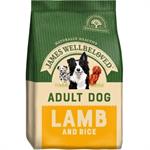Uses
For the treatment of horses and other equines infected with benzimidazole susceptible immature and mature stages of roundworms found in the gastro-intestinal tract, including large redworms (Strongylus vulgaris, Strongylus edentatus) and migrating large redworms, small redworm and mucosal larvae, Ascarids, Oxyuris and Strongyloides species. Panacur also kills roundworm eggs.
Dosage and administration
Routine treatment: One sachet per 300 kg bodyweight as a single dose.
Practical dosage recommendations:
Weight Type Dosage
Up to 300 kg eg. Donkeys, Shetlands, other small ponies, etc. 1 sachet
300 - 600 kg Larger ponies, Thoroughbreds, Light hunters, Arabs, etc. 2 sachets
600 kg+ Heavy hunters, Draught horses 3 sachets
Increased dosing for specific infections
For the control of migrating large redworm and encysted mucosal small redworm larvae, administer one sachet per 300 kg bodyweight daily for 5 consecutive days. It is not necessary to withhold feed before or after treatment. Assess bodyweight accurately before calculating the dosage. The use of a weigh band is recommended.
Panacur Equine Granules are odourless and tasteless and should be mixed with your horse’s concentrate or grain feed with the full daily dosage given in one feed.
Dosing programmes It is recommended that horses and ponies are routinely wormed up to every six to eight weeks during the grazing season, depending on their individual requirements. Seek veterinary advice for appropriate monitoring, stock management and dosing programmes to allow optimum endoparasite control. In late winter or spring, mass emergence of mucosal small redworm larvae from the horse’s gut can cause parasitic diarrhoea, mild recurring colic, weight and appetite loss and weakness. To avoid this, it is recommended that horses are treated with the 5 day Panacur treatment between the end of October and December. All new horses whose worming history is unknown should also be treated with the 5 day Panacur dose. Pregnant mares and foals may also be safely treated with Panacur at recommended dosage levels.
Contra-indications, warnings, etc
Assess bodyweight as accurately as possible before calculating the dosage.
Care should be taken to avoid the following practices because they increase the risk of development of resistance and could ultimately result in ineffective therapy:
Too frequent and repeated use of anthelmintics from the same class, over an extended period of time.
Underdosing, which may be due to underestimation of body weight, misadministration of the product, or lack of calibration of the dosing device (if any).
Suspected clinical cases of resistance to anthelmintics should be further investigated using appropriate tests (e.g. Faecal Egg Count Reduction Test). Where the results of the test(s) strongly suggest resistance to a particular anthelmintic, an anthelmintic belonging to another pharmacological class and having a different mode of action should be used.
Resistance to fenbendazole has been reported in cyathostomes in horses. Therefore the use of this product should be based on local (regional, farm) epidemiological information about susceptibility of nematodes and recommendations on how to limit further selection for resistance to anthelmintics.
Operator warnings
Direct contact with the skin should be kept to a minimum.
Avoid inhalation of granule dust. Wash hands after use.
Withdrawal periods
Not to be used in horses intended for human consumption.
Treated horses may never be slaughtered for human consumption.
The horse must have been declared as not intended for human consumption under national horse passport legislation.
For animal treatment only. Keep out of the reach and sight of children.
Pharmaceutical precautions
This veterinary medicinal product does not require any special storage conditions. Keep sachets in outer carton.
Disposal advice:
Dispose of any unused product and empty sachets in accordance with guidance from your local waste regulation authority. Dangerous to fish and aquatic life. Do not contaminate ponds, waterways or ditches with the product or used container.
